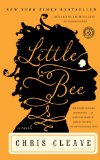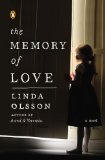Summary | Excerpt | Reading Guide | Reviews | Beyond the book | Read-Alikes | Genres & Themes | Author Bio

(aka The Other Hand)
by Chris CleaveIt's unfortunate that Little Bee's publishers chose to market the book with such a gimmicky plot summary, as it may turn away as many readers as it attracts. It is accurate to say, though, that the manner in which the story unfolds is a major part of its appeal. Many authors engage readers by sparking their desire to know what comes next. Chris Cleave, however, creates suspense around what happened before.
The title character in Little Bee is a teenager from Nigeria attempting to find refuge in England. She appeals for help to the only people she knows outside her homeland: Sarah, the publisher of a trendy London magazine, and her journalist husband, Andrew. As Little Bee progresses, questions continually arise in the reader's mind. (Why did Little Bee need to flee Nigeria? How did she and Sarah meet? Why is Andrew so devastated by Little Bee's reappearance?) Rather than gradually dropping clues, Cleave instead reveals parts of their stories in great devastating chunks -- somewhat like lobbing literary hand-grenades at the unsuspecting reader. The revelations are sudden and stunning. In the hands of a lesser writer this technique could come across as calculated and artificial. Cleave, however, does a marvelous job of using the plot twists to shock readers without making them feel manipulated.
Little Bee and Sarah narrate alternate chapters of the novel, speaking directly to the book's reader as if conversing with a friend. Cleave has taken great pains to give each woman a unique voice and viewpoint. Little Bee, in particular, comes across as both wise and witty:
"I am only alive at all because I learned the Queen's English. Maybe you are thinking, that isn't so hard. After all, English is the official language of my country, Nigeria. Yes, but the trouble is that back home we speak it so much better than you. To talk the Queen's English, I had to forget all the best tricks of my mother tongue. For example, the Queen could never say, There was plenty wahala, that girl done use her bottom power to engage my number one son and anyone could see she would end in the bad bush. Instead, the Queen must say, My late daughter-in-law used her feminine charms to become engaged to my heir, and one might have foreseen that it wouldn't end well. It is all a little sad, don't you think? Learning the Queen's English is like scrubbing off the bright red varnish from your toenails, the morning after a dance. It takes a long time and there is always a little bit left at the end, a stain of red along the growing edges to remind you of the good time you had.
Cleave's desire to write about the plight of asylum-seekers in England is obvious (see Sidebar), and Little Bee's status as a refugee is crucial to the plot from start to finish. Still, Little Bee doesn't come across as a "message book." Cleave makes a statement, but with a light touch. Indeed, the book focuses more on the choices one makes than on the treatment of refugees. The author strikes a nice balance, vividly describing scenes of domestic tranquility and moments of true terror, inserting bits of dark humor along the way that add to the book's likeability.
The novel isn't perfect. Neither the initial encounter between the two women nor their parting at the end comes across as believable or logical. The events make great bookends, providing a certain sense of symmetry, but readers who want every bit of a book to make sense may find these scenes unsatisfying.
That criticism aside, readers are likely to find much to like about Little Bee. Its controversial underlying themes, thorny moral dilemmas and deep emotional impact will make this novel a popular choice for book clubs.
![]() This review was originally published in The BookBrowse Review in March 2009, and has been updated for the
February 2010 edition.
Click here to go to this issue.
This review was originally published in The BookBrowse Review in March 2009, and has been updated for the
February 2010 edition.
Click here to go to this issue.

If you liked Little Bee, try these:

by Stephen Dau
Published 2013
An exceptional debut novel about a young Muslim war orphan whose family is killed in a military operation gone wrong, and the American soldier to whom his fate, and survival, is bound.

by Linda Olsson
Published 2013
From the beloved author of Astrid & Veronika, a moving tale of friendship and redemption
What really knocks me out is a book that, when you're all done reading, you wish the author that wrote it was a ...
Click Here to find out who said this, as well as discovering other famous literary quotes!
Your guide toexceptional books
BookBrowse seeks out and recommends the best in contemporary fiction and nonfiction—books that not only engage and entertain but also deepen our understanding of ourselves and the world around us.